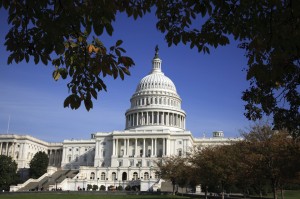 Imagine you are a federal prosecutor and the following fact pattern lands on your desk: a college student has gained unauthorized access to the email account of a candidate for federal office. He changed the email account password and then shared the new password on an Internet message board. Within one day, fearing a possible (but-not-yet-initiated) investigation, he took steps to delete information related to his unauthorized access from his computer. Based on these facts, what charges would you consider? Identity theft in violation of 18 U.S.C. § 1028? Wire fraud in violation of 18 U.S.C. § 1343? A violation of the Computer Fraud and Abuse Act (18 U.S.C. § 1030)?
Imagine you are a federal prosecutor and the following fact pattern lands on your desk: a college student has gained unauthorized access to the email account of a candidate for federal office. He changed the email account password and then shared the new password on an Internet message board. Within one day, fearing a possible (but-not-yet-initiated) investigation, he took steps to delete information related to his unauthorized access from his computer. Based on these facts, what charges would you consider? Identity theft in violation of 18 U.S.C. § 1028? Wire fraud in violation of 18 U.S.C. § 1343? A violation of the Computer Fraud and Abuse Act (18 U.S.C. § 1030)?
Each of those charges seems like a logical choice, in no small part because they were in fact charged in the case from which that fact-pattern is taken. See United States v. Kernell, 667 F.3d 746 (6th Cir. 2012). But what about obstruction of justice, even though the deletion of the content occurred before any government investigation or proceeding had been initiated? Prosecutors can — and in several recent cases have — leveled just such anticipatory obstruction of justice charges under 18 U.S.C. § 1519, in a trend that has potentially stark implications for companies and their counsel in addressing compliance matters, internal and external investigations, and day-to-day operational activities with the potential to implicate federal issues.
Enacted as part of the Sarbanes-Oxley Act of 2002, Section 1519 substantially broadens the more familiar obstruction statutes by excluding any requirement that a proceeding be known to the accused or even pending in order for obstruction to have occurred. Section 1519 — which over the last two years has been validated against vagueness claims and clarified by several Courts of Appeals— provides:
Whoever knowingly alters, destroys, mutilates, conceals, covers up, falsifies, or makes a false entry in any record, document, or tangible object with the intent to impede, obstruct, or influence the investigation or proper administration of any matter within the jurisdiction of any department or agency of the United States or any case filed under title 11, or in relation to or contemplation of any such matter or case, shall be fined under this title, imprisoned not more than 20 years, or both. (Emphasis added.)
As courts have now recognized, the elements for an offense under § 1519 include: (1) knowingly (2) destroying or concealing a record or document (3) with the intent to impede or obstruct any matter (including those contemplated but not yet initiated) within the jurisdiction of the United States. United States v. Powell, 680 F.3d 350, 355-56 (4th Cir. 2012).
The breadth of this statute in contrast to the other obstruction statutes, and its potential application in the business setting, are striking, if for no other reason than the relative obscurity of Section 1519. Notable aspects of Section 1519 that relieve the government of several burdens include:
The defendant need not know a matter was pending or within federal jurisdiction. Instead, the “knowingly” element refers only to the obstructive conduct. United States v. Moyer, 674 F.3d 192, 208 (3rd Cir. 2012). The federal nature of the statute’s prohibition is a jurisdictional requirement, but not a substantive element under Section 1519. United States v. McRae, 702 F.3d 806, 834 (5th Cir. 2012).
No nexus requirement. Given that an investigation or matter within federal jurisdiction need not be initiated or even pending at the time of the obstructive conduct, the government need not prove any connection between the alleged obstructive conduct and the federal matter. Moyer, at 209; United States v. Gray, 692 F.3d 514, 519-20 (6th Cir. 2012).
Materiality is not an element. As an example, falsification through omission from a log or report can support a conviction, without proof of the materiality of the omission. Powell, at 356; Moyer, at 207-08.
This broad statute should be considered when advising clients at the earliest stages of an internal investigation or other compliance matter. While counsel may not recommend (and clients may resist) the issuance of a legal hold notice unless and until a government investigation or civil litigation has been initiated, Section 1519 expands the reach of such statutes to criminalize obstructive conduct undertaken in contemplation of any matter within federal jurisdiction. Should an employee alter or destroy evidence, or withhold information from the investigation, for fear that full disclosure may implicate a rule or regulation within federal jurisdiction, liability for the individual and the organization may attach.
